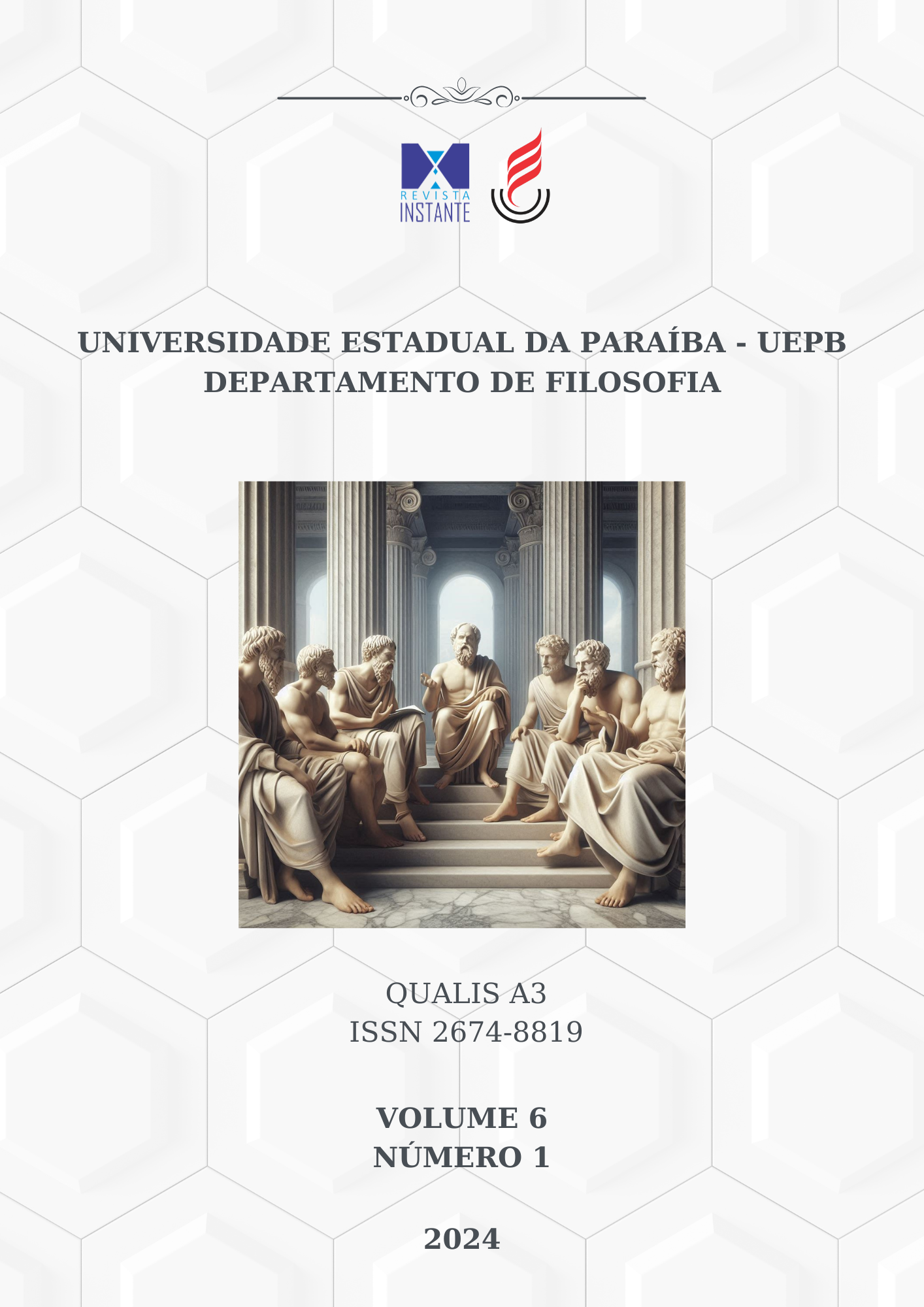Non-conceptualism and perception
some epistemological consequences
Keywords:
Perceptual content, Non-conceptualism, Conceptualism, Scenario-content, ExternalismAbstract
In this article, we intend to analyze the epistemological consequences of the non-conceptualist approach to perceptual content. First, we will mention the main arguments in favor of the non-conceptualist thesis: the conceptual learning argument; the argument for perception in infants and non-human animals; and the richness of experience argument. Next, the scenario-content model is proposed as the representational content of perception. The next step is to discuss the conceptualist objections, in particular the myth of the given. Finally, we will hypothesize that the best way to understand the epistemic role of perception, in a non-conceptualist model, is by distinguishing internal and external forms of epistemic warrant, which we call justification and entitlement, correspondingly. One of the main upshots of non-conceptualism is to reject excessively intellectualist positions of epistemic entitlement.
References
ANDREWS, K. 2015. The animal mind: an introduction to the philosophy of animal cognition. New York: Routledge.
BERMÚDEZ, J. 2003. Nonconceptual content: from perceptual experience to subpersonal computational states. Em: GUNTHER, Y. (ed.). Essays on nonconceptual content. Cambridge MA: The MIT Press, p. 183-215.
BERMÚDEZ, José Luis. The distinction between conceptual and nonconceptual content. Em: MCLAUGHLIN, Brian; BECKERMANN, Ansgar; WALTER, Sven (ed.). The oxford handbook of philosophy of mind. Oxford: Oxford University Press, 2009.
BOUNJOR, L. 1985. The structure of empirical knowledge. Cambridge: Harvard University Press.
BREWER, B. 1999. Perception and reason. Oxford: Oxford University Press.
BURGE, T. 2003. Perceptual entitlement. Philosophy and Phenomenological Research, v. 67, n. 3, p. 503–548. Disponível em: https://onlinelibrary.wiley.com/doi/10.1111/j.1933-1592.2003.tb00307.x.
CARVALHO, E. Em defesa da justificação perceptiva: desmistificando o mito do dado. 2007. Belo Horizonte, MG. Tese de Doutorado. Universidade Federal de Minas Gerais.
CHAPANIS, A; OVERBEY, C. 1971. Absolute judgments of colors using natural color names. Perception & Psychophysics, v. 9, n. 4, p. 356–360. Disponível em: https://link.springer.com/article/10.3758/BF03208695.
GERKEN, M. Epistemic entitlement: its scope and limits. 2020b. Em: GRAHAM, P; PEDERSEN, N (ed.). Epistemic entitlement. Oxford: Oxford University Press, p. 151-176.
GOLDMAN, Alvin. 1979. What is justified belief? Em: PAPPAS, G (ed.). Justification and knowledge: new studies in epistemology. London: Reidel Publishing Company, p. 1-25.
GRAHAM, P. 2020. What is epistemic entitlement? Reliable competence, reasons, inference, access. Em: KELP, C; GRECO, J (ed.). Virtue theoretic epistemology: new methods and approaches. Cambridge: Cambridge University Press, p. 93-123.
HECK, R. 2000. Nonconceptual content and the space of reasons. The Philosophical Review, v. 109, p. 483-523. Disponível em: https://doi.org/10.2307/2693622.
KELLY, S. 2001. Demonstrative concepts and experience. Philosophical Review, v. 110, n. 3, p. 397–420. Disponível em: https://doi.org/10.2307/2693650.
MCDOWELL, J. Mente e mundo. 2005. Trad.: João V. G. Cuter. Aparecida: Ideias & Letras.
PEACOCKE, C. A study of concepts. 1999. 2. ed. Massachusetts: MIT Press.
PEACOCKE, C. Does perception have a nonconceptual content? 2001a. The Journal of Philosophy, v. 98, n. 5, p. 239–264. Disponível em: https://doi.org/10.2307/2678383.
PEACOCKE, C. Phenomenology and nonconceptual content. 2001b. Philosophy and Phenomenological Research, v. 62, n. 3, p. 609–615. Disponível em: https://doi.org/10.2307/2653539.
PEACOCKE, C. Sense and content: experience, thought, and their relations. 1983. Oxford: Claredon Press.
PEACOCKE, C. Scenarios, concepts, and perception. 2003. Em: GUNTHER, Y (ed.). Essays on nonconceptual content. Cambridge MA: The MIT Press, p. 107-132.
SCHELLENBERG, S. A trilemma about mental content. 2013. Em: SCHEAR, J. (ed.). Mind, reason, and being in-the-world: the McDowell-Dreyfus debate. Abingdon: Routledge, p. 272-282.
SCHMIDT, Eva. 2015. Modest Nonconceptualism: epistemology, phenomenology, and content. Switzerland: Springer International Publishing.
SELLARS, W. 2008. Empirismo e filosofia da mente. Tradução de Sofia Inês Albornoz Stein. Petrópolis, RJ: Vozes.
SILINS, N. 2012. Explaining Perceptual Entitlement. Erkenntnis, v. 76, n. 2, p. 243–261. Disponível em: https://www.jstor.org/stable/41417614.
TORIBIO, J. Nonconceptual content. Philosophy Compass, v. 2, n. 3, p. 445–460. Disponível em: https://doi.org/10.1111/j.1747-9991.2007.00075.x.










